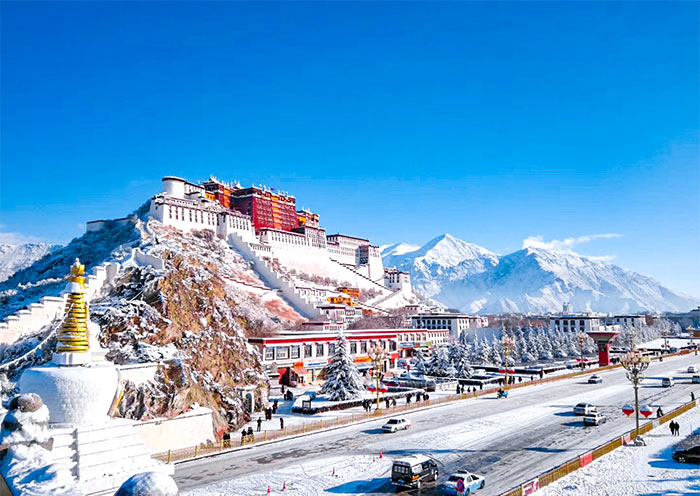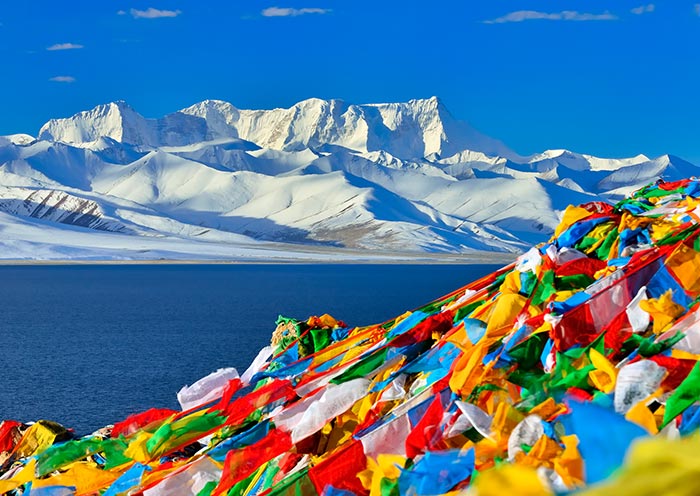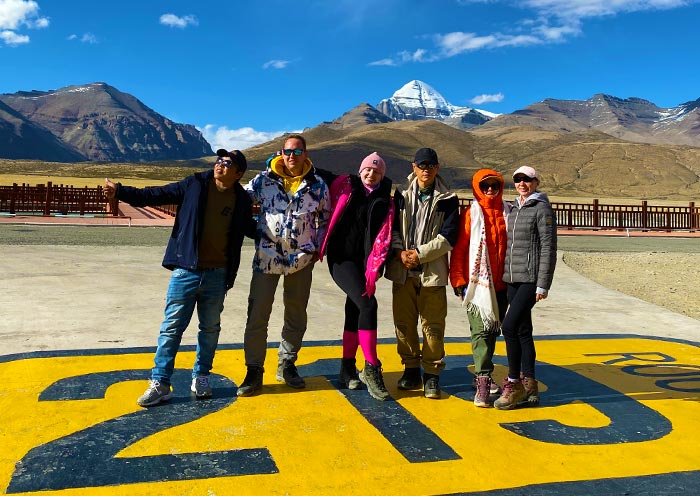General Basic Packing List for a Tibet Tour
Essential Documents
You will need your passport, visa, and Tibet Travel Permits. It's also a good idea to have photocopies of these documents stored separately from the originals. If you lose the originals, having copies can expedite the replacement process. Also, have digital copies saved in your email or cloud storage for added security.
Clothing and Shoes
Tibet's climate can vary greatly between day and night. Pack clothing that can be layered, such as thermal underwear, warm sweaters, and a down jacket of good quality. A windproof and waterproof outer layer is also essential to protect you from potential rain or snow. Gloves, scarves, and warm hats will provide additional warmth. If you plan on trekking, comfortable walking shoes and hiking boots are a must. Shoes should be broken in before the trip to avoid blisters.
Electronics
A camera is essential for capturing the breathtaking landscapes. Don't forget spare batteries or a power bank, as charging facilities may be limited in remote areas. A universal power adapter is necessary for charging your devices, as socket types can vary.
Personal Daily Necessities
Due to Tibet's dry climate, bring toiletries that emphasize moisturizing, such as lotion and lip balm. A reusable water bottle can keep you hydrated and reduce plastic waste. Sunscreen is essential to protect your skin from strong UV rays at high altitudes. High-quality sunglasses with UV protection will shield your eyes from the sun's glare. A hat can provide additional sun protection.
Medications
Bring any personal prescription medications with enough supply for your trip. Over-the-counter medicines for common travel ailments such as motion sickness, diarrhea, and colds should also be included. High altitudes can cause sickness in some people, so consult your doctor about preventive medications before your trip.
Remember, packing efficiently is key. This will not only make your journey more comfortable but also ensure you are prepared for various situations on your Tibet tour.
What to Pack for China: Ultimate Guide from Head to Toe

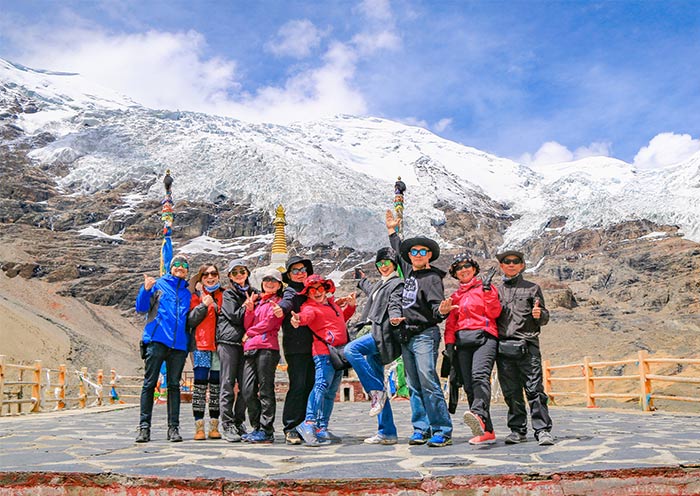
Essential Preparations for a Visit to Everest Base Camp in Tibet
Health and Acclimatization
The journey to Everest Base Camp involves navigating rugged, winding mountain roads, which can potentially cause motion sickness. It is advisable to carry motion sickness medication. Altitude sickness is another common occurrence for many travelers due to the high elevations. Consult with your doctor about preventive medications before your trip. Keeping a thermos with hot water will not only aid in medication intake but will also help with acclimatization.
Clothing and Gear for High Altitudes
The temperatures at the Base Camp can be extremely low, especially during the night. Ensure you have additional layers of warm clothing, including thermal underwear, insulating mid-layers, and a good quality down jacket. A windproof and waterproof outer layer is also necessary. If you plan to spend the night, remember to bring a high-quality, cold-rated sleeping bag.
Sun and UV Protection
The UV rays at high altitudes can be significantly stronger due to the thinner atmosphere. To protect your skin and eyes from potential sun damage, pack high SPF sunscreen, UV-protected sunglasses, and a sun hat.
Hydration and Nutrition
High-energy snacks such as nuts and energy bars are recommended for physical exertion at high altitudes. As bottled water may not be readily available, it's essential to carry water purification tablets or a water purifier to ensure you have access to clean drinking water.
Hygiene
Given the minimal washing facilities at Everest Base Camp, wet wipes can be invaluable for cleaning hands, freshening up and even washing your face.
By ensuring you are well-prepared, you can enhance your visit to Everest Base Camp in Tibet, allowing you to fully appreciate the majesty of the world's highest peak.


What to Prepare for Trekking Mount Kailash
Trekking Essentials
Opt for robust hiking boots or thermal, non-slip athletic shoes to navigate the rugged terrains of Mount Kailash. However, to sidestep the discomfort of blisters, steer clear of brand-new shoes. A hiking pole, a true companion on this journey, offers stability and can be conveniently rented or purchased on-site.
Check more details about Mount Kailash Trekking>>
Cold Weather Gear
Arm yourself with lightweight yet toasty clothing to comfortably conquer the chilling temperatures during your ascent. In the face of snow, ramp up your warmth game. Essential accessories like snug hats and gloves should not be overlooked.
Sun Protection
The sun's intensity magnifies at high altitudes. Arm up against the harsh rays with substantial sun protection gear, including high-SPF sunscreen and high-UV protection sunglasses.
Altitude Sickness Prevention
The elevation during the trek stays above 4500 meters, peaking at 5600 meters, which increases the risk of altitude sickness. Carry appropriate medication and consider having a portable oxygen canister. Oxygen canisters can be purchased at supply points.
Food and Energy Supplies
Replenish your energy at the generous supply points dotting the route, offering an array of food and beverage choices, particularly during the bustling trekking season from April to October. Keep in mind, however, that the prices may be a notch higher than in lower regions.
Travel Light, Travel Right:
Keeping your backpack feather-light is pivotal to your trekking experience. Consider paring down on hefty items like water bottles and bulky photography gear. If the weight becomes unmanageable, local porters are at your service.
By heeding these key pointers, you're set for an exhilarating, unforgettable trek to the awe-inspiring heights of Mount Kailash.
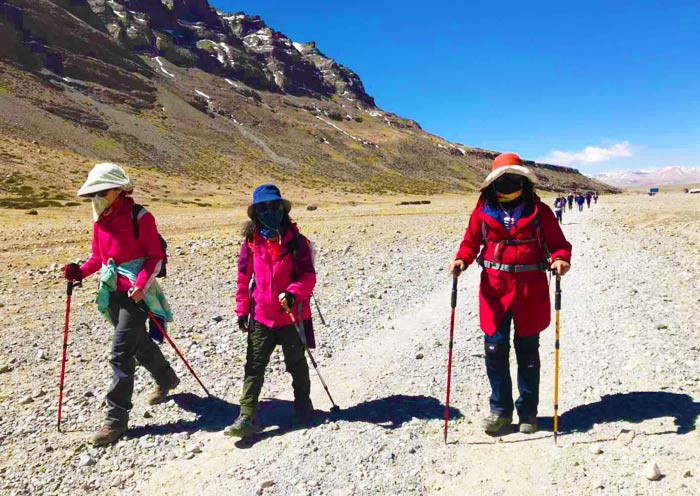
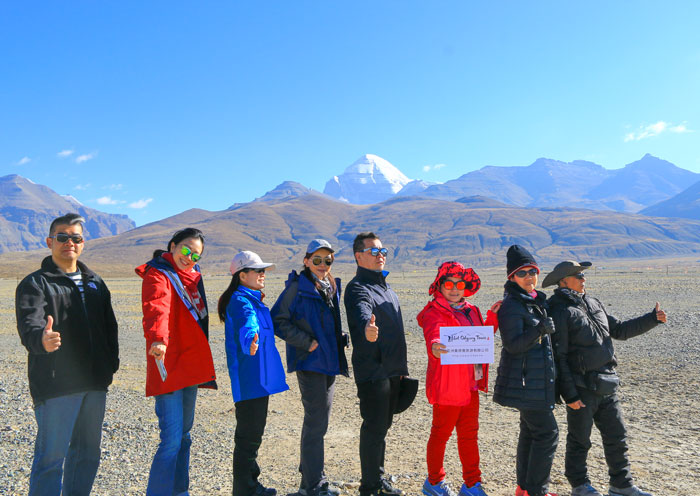
Luggage Limit and Packing Suggestions for the Train or Plane to Tibet
Train to Tibet
Luggage Size and Weight: There's no strict weight limit for trains to Tibet, but it's advisable to keep each piece of luggage below 20 kg for the comfort and convenience of all passengers. The total dimensions (length + width + height) of each piece of luggage should not exceed 160 cm. Since space for storing luggage on the tibet train is limited, avoid bringing oversized luggage.
Packing Suggestions for Train Travel: Pack your essentials in a separate, smaller bag or backpack that you can keep with you. This should include items you'll need during the train ride, such as electronics, snacks, an eye mask, and personal hygiene items. Note that full shower facilities are not available on the tibet train, so you can only do a basic face wash and brush your teeth. Also, due to the possibility of theft on the train, keep your valuables in your carry-on bag.
Plane to Tibet
Luggage Limit: For most airlines, the checked luggage limit is 20 kg for economy class, and the carry-on luggage limit is usually one piece weighing up to 7 kg. If your luggage exceeds these limits, you may have to pay excess baggage fees.
Packing Suggestions for Air Travel: Pack essentials such as travel documents, medications, a change of clothes, and valuable items in your carry-on bag. This way, in the unlikely event that your checked luggage gets lost or delayed, you'll have the most important items with you. Note that any liquids in your carry-on bag must be in containers of 100 ml or less, and all containers must fit in a clear, resealable plastic bag with a total capacity of 1 liter or less.
By packing light and smart, you can ensure a smooth and comfortable journey to Tibet, whether you're traveling by train or plane.
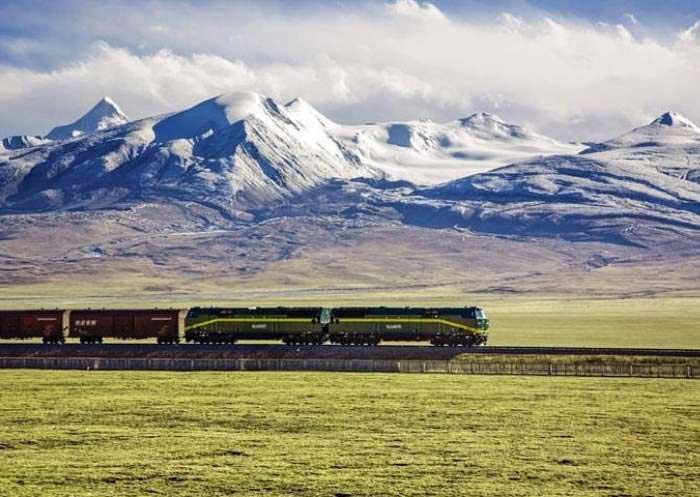
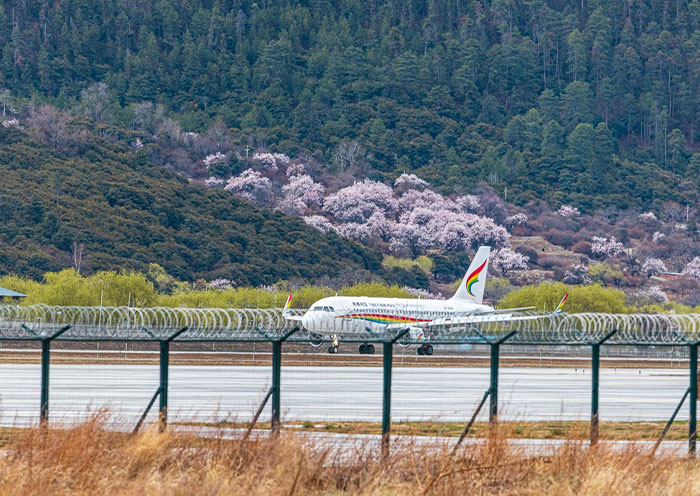
How to Plan A Tibet Tour - Recommended Itinerary for First-Time Visitors
Tibet, known for its unparalleled plateau landscapes and centuries-old Buddhist culture, is a destination that leaves its visitors in awe. For first-time visitors to Tibet, we recommend a journey of 8-15 days to fully explore the charm of Tibet.
Spend the first 4 days acclimatizing in Lhasa to explore the city's iconic landmarks, including the grandeur of Potala Palace, the spiritual Jokhang Temple, the bustling Barkhor Street, and the serene Sera Monastery.
Embark on a 4-day round trip to the Everest Base Camp, a pilgrimage for mountain enthusiasts worldwide. The journey will include a rest stop at Shigatse, where you can visit the historic Tashilhunpo Monastery. This route also presents an opportunity to marvel at the stunning Yamdrok Lake and the breathtaking Karola Glacier.
If time permits, consider extending your journey to Mount Kailash. Challenge yourself with a high-altitude trek in this area, and visit the awe-inspiring Tholing Monastery and the mysterious Guge Kingdom. This extended trip will require an additional 7 days, including 3 days for trekking.
Explore Tibet with Asia Odyssey Travel
With over 10 years of local expertise in Lhasa and Tibet (Xizang), our dedicated team at Asia Odyssey Travel brings you carefully curated Tibet tours for an authentic and unforgettable experience.
Drawing upon our extensive experience, we have meticulously crafted a range of Tibet tour packages, including Lhasa tours, Mount Everest Tours, Mount Kailash Tours, Tibet Trekking Tours, Tibet Train Tours, and Tibet Overland Tours. Whether you prefer the comfort and flexibility of a private tour or the budget-friendly option of a group tour, we have you covered without compromising on quality.
Additionally, we cater to various travel preferences, whether you wish to commence your Tibet tour from one of the popular gateway cities in China, embark on Nepal Tibet tours, or even explore the mesmerizing Himalayan region. Whatever you desire, Asia Odyssey Travel has the perfect tour to meet your needs, ensuring that your expedition to Tibet (Xizang) becomes an unforgettable adventure.






